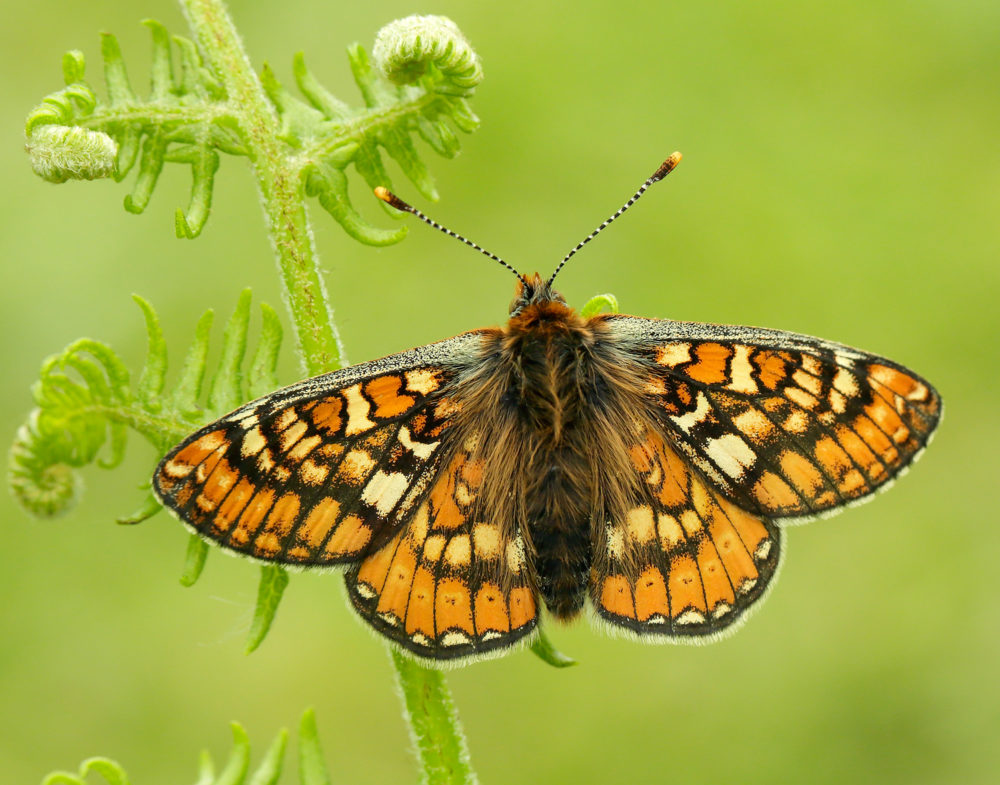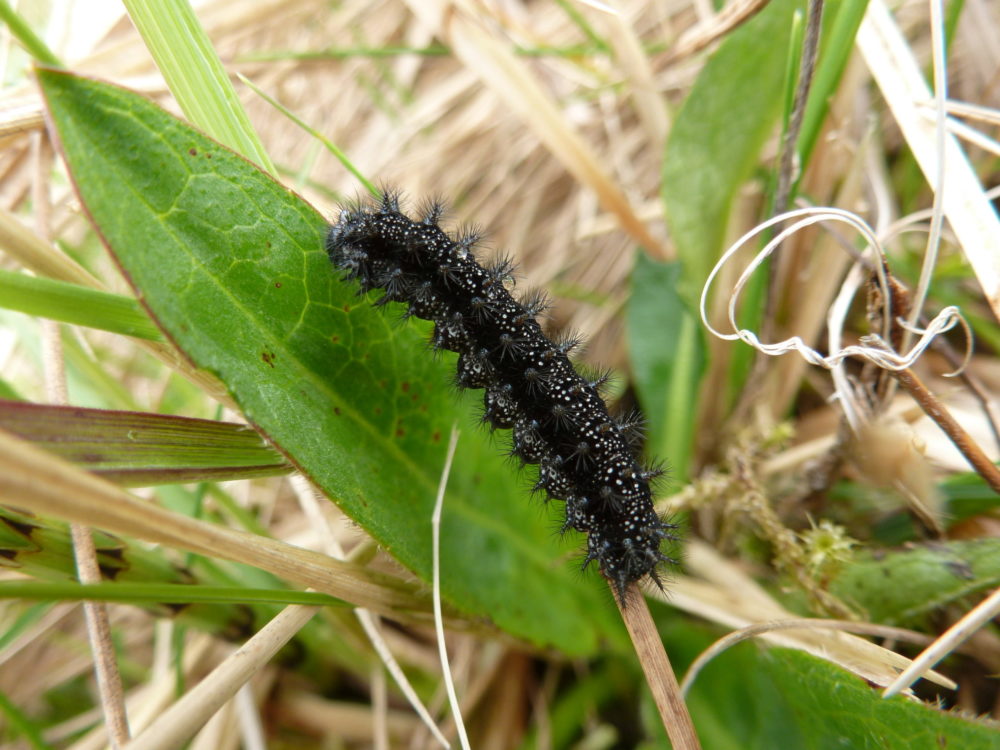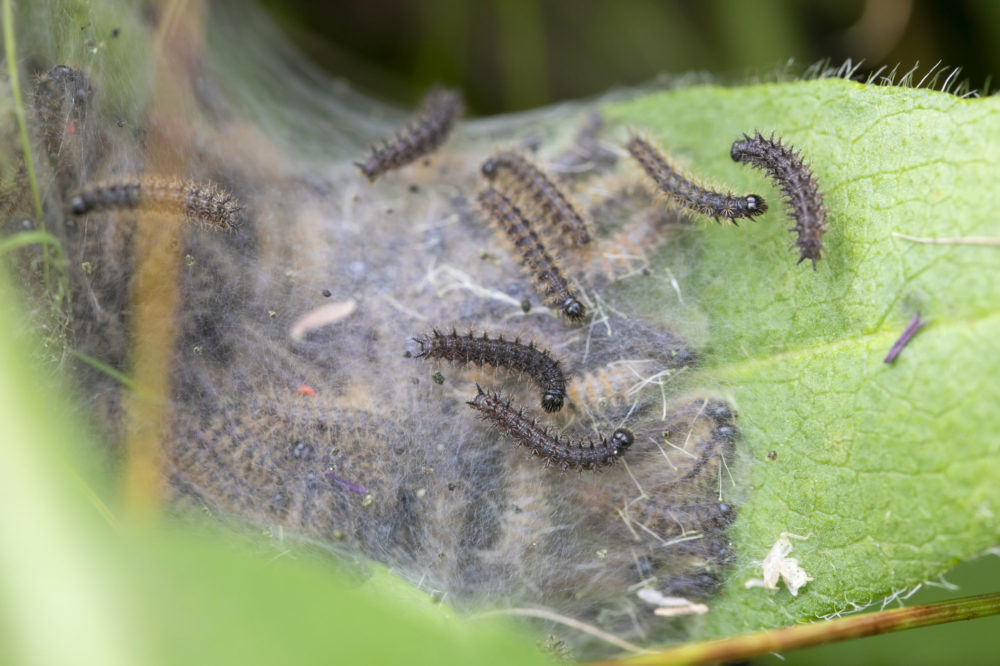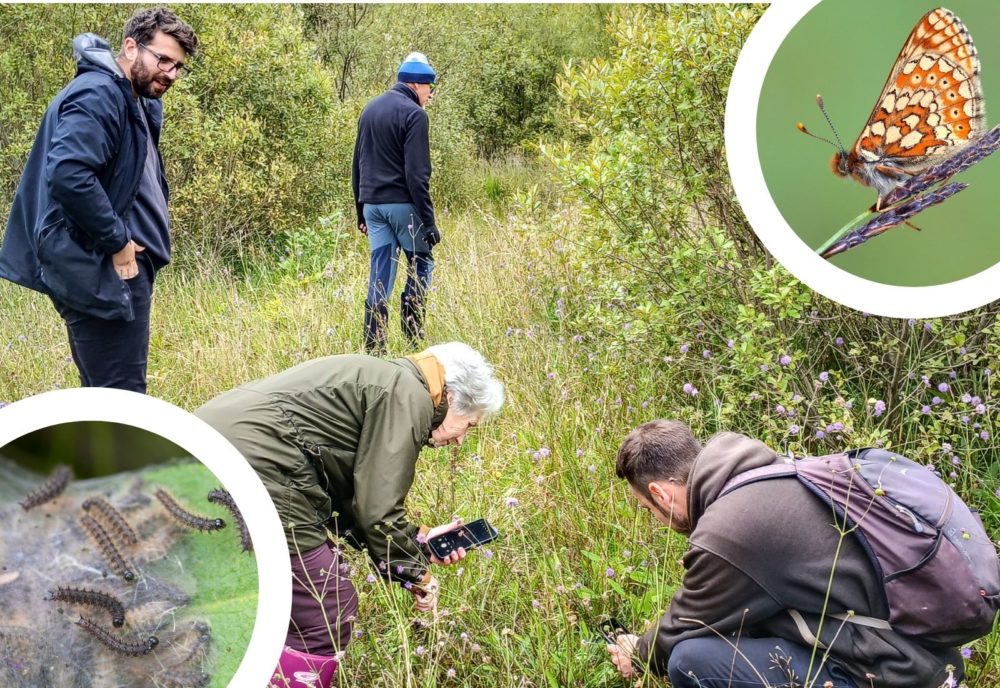Butterfly experts on a mission to save rare species in Wales

The UK’s leading butterfly charity has launched a dedicated programme to save one of Wales’s most endangered species.
Butterfly Conservation is training dozens of people, leading survey expeditions and working with landowners to improve habitat for the stunning Marsh Fritillary.
The charity has been awarded £174,000 from the Welsh Government’s Nature Networks Fund (round three) to create a Wales Marsh Fritillary Recovery Partnership, and has employed a dedicated member of staff, John Hitchens, as its Wales Marsh Fritillary Recovery Project Officer.
The partnership will be made up of environmental charities, statutory bodies, volunteers, landowners and managers who can share their knowledge and work together to help the vulnerable species.
“Invaluable indicators”
John, who started his role in June, said: “The Marsh Fritillary is a beautiful butterfly that we are lucky to have in Wales and is worth saving in its own right – but it’s more than that: butterflies are also invaluable indicators of the health of the whole ecosystem, so if we can create an environment where Marsh Fritillaries are doing well, it will also be a healthy environment for lots of other species.”
The Marsh Fritillary, an elegant butterfly with orange, yellow and brown chequered wings reminiscent of a stained-glass window, was once widespread throughout much of Wales, but like many butterflies, numbers plummeted throughout the 20th century.

Marsh Fritillary caterpillars almost exclusively eat the leaves of Devil’s-bit Scabious, but plant and butterfly have been battered by habitat loss, changes in farming techniques and pesticide use.
Between 1981 and 2019, the distribution of Marsh Fritillaries in the UK dropped 43 per cent.
The species has also declined across Europe, making the British Isles an important stronghold.
In Wales the abundance of Marsh Fritillary plummeted 61 per cent between 1990 and 2019, and it is now doing best in the west, particularly in Carmarthenshire, Pembrokeshire and Ceredigion.
In September Butterfly Conservation declared a UK-wide Butterfly Emergency to draw attention to decades of declines in many species, and called on the Government to ban the use of neonicotinoid pesticides.
However Butterfly Conservation is now hoping to stabilise and secure the remaining Welsh populations of Marsh Fritillary and in due course help it spread its wings across Wales once again.
Volunteer driven
The charity started the project, which is funded by the Nature Networks Programme and is being delivered by the National Lottery Heritage Fund on behalf of the Welsh Government, by giving free talks about the Marsh Fritillary which were attended by nearly 100 people and are now available on YouTube.
It then ran a series of free training sessions at five sites across Wales, teaching people to survey the species by counting the silken nests its caterpillars weave in long grass, known as ‘larval webs’. More than 50 people joined the sessions including National Trust officers, landowners, council employees and members of public.
Much of the training and surveying was led by dedicated volunteers who have helped Butterfly Conservation for years, monitoring core Marsh Fritillary sites throughout Wales. The project is hoping to train new volunteers to monitor more locations.
However the most important work comes next: members of the team will work with landowners, land managers and other partners over the winter to draw up detailed, costed plans for work they could carry out to help Marsh Fritillaries on their land informed by the monitoring of the larval webs.

A lot of these plans will revolve around grazing: Marsh Fritillaries live in harmony with cattle and ponies because the way they graze leaves long, tussocky areas where caterpillars can weave their webs in safety. Sheep, on the other hand, eat the Devil’s-bit Scabious which is the butterflies’ only foodplant.
The charity will then seek funding from grant-giving bodies to make these plans a reality.
Butterfly Conservation Head of Conservation for Wales Alan Sumnall said: “This project is all about the legacy: we want to inspire an army of people across Wales to protect this beautiful butterfly which is one of our national wildlife treasures.
“The Marsh Fritillary has suffered so badly from human activity in the last 100 years, but there are concrete things we can do to help it recover, and some fantastic landowners are already doing them. If we can inspire more to follow suit this could turn into a wonderful success story for people and wildlife.”

In the meantime the charity will be giving more talks in the spring, adult butterfly survey training sessions in May and June and more larval web survey training in the autumn across Wales.
The project will also be offering funded traineeships for 18-to-25-year-olds next summer, and will even be running minibus day-trips taking community groups to see their local Marsh Fritillary populations.
Andrew White, Director for The National Lottery heritage Fund in Wales, said: “In Wales our identity is linked to our natural heritage. Protecting the environment is a priority for The National Lottery Heritage Fund and seeing the impact and transformation first-hand as a result of working alongside the Welsh Government and Natural Resources Wales continues to inspire me.
“There’s no greater visual representation of protecting natural beauty than rescuing one of Wales’ most endangered species of butterfly. I’m proud that we play our part in helping programmes and projects like this do important work in conserving and restoring Wales’ natural heritage.”
Find out more and contact the team at butterfly-conservation.org/conservation-projects/Wales-Marsh-Fritillary-Recovery-Partnership
Support our Nation today
For the price of a cup of coffee a month you can help us create an independent, not-for-profit, national news service for the people of Wales, by the people of Wales.






Anyone brave enough to suggest that sheep are bad news for a great deal more than the marsh fritillary?
Interesting that it needs more “concrete things” to do well.
Interesting work in a Scottish valley (Carrifran) where they stopped grazing, and the grow back of plants and wildlife increase, quite a transformation. You can get a similar effect with no mow at home albeit it on a tiny scale.